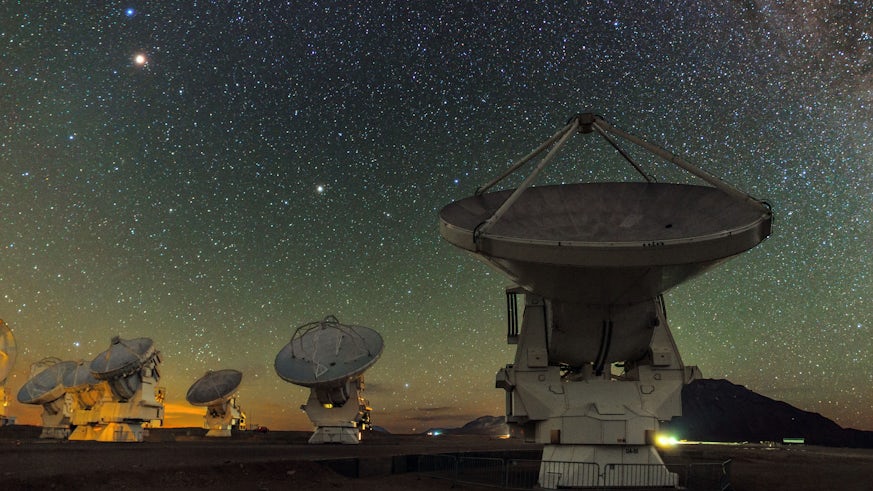Leading the search for supernovae and unusual transients
8 February 2019

Dr Cosimo Inserra, who has recently taken up a position in the School of Physics and Astronomy, has been awarded a long term astronomical survey with the European Southern Observatory (ESO) in order to monitor the sky for supernovae and unusual transients.
Transients are astronomical objects or phenomenon which may last days, weeks or years, as opposed to stars and galaxies which form over millions of years. They are often violent events and comprise supernovae, gamma ray bursts, tidal disruption eventsand gravitational wave sources. More and more, these events are helping astrophysicists understand how the universe has been formed.
Dr Inserra will be one of 196 astronomers around the world working on the ePESSTO+ project over an initial eighteen month period. The survey is a continuation of PESSTO and ePESSTO which was the largest European spectroscopic survey in time-domain astronomy.
The PESSTO/ePESSTO project, led by Professor Stephen Smartt from Queen’s University, Belfast, gathered together the ESO community of researchers working on supernovae and unusual transients together into one unified team. They monitored the sky several nights to provide legacy datasets for the electromagnetic counterpart of gravitational waves, the lowest metallicity supernovae, supernovae in remote locations and long-lived supernovae not explained by neutrino-driven explosions. They also unveiled a diversity in the most luminous supernovae.
Building on this success, ePESSTO+ plans to expand the scientific focus to include gravitational wave sources, transients that evolve on the timescale of a few days, and those with extreme energetics. They will focus on the most exciting new transient populations now being discovered by all-sky surveys such as the Zwicky Transient Facility, Gaia and ATLAS. The current stream of transients provided by these surveys requires large spectroscopic follow-up which the ESO community, thanks to ePESSTO+, is well placed to lead.
Dr Inserra, who is the leader of the survey, commented: “This is a really exciting achievement for the School of Physics and Astronomy and the team of scientists involved. There are very few ongoing ESO surveys and the award is indicative of the leading role Cardiff University is taking in time-domain astronomy. We are hoping that the datasets that are generated from our survey will help to inform the research being undertaken in astronomy and gravitational physics, not just in Cardiff, but across the world.”
In his new role at Cardiff University Dr Inserra will be working in both the Astronomy Research Group and the Gravity Exploration Institute to facilitate cross-cutting research within the School.